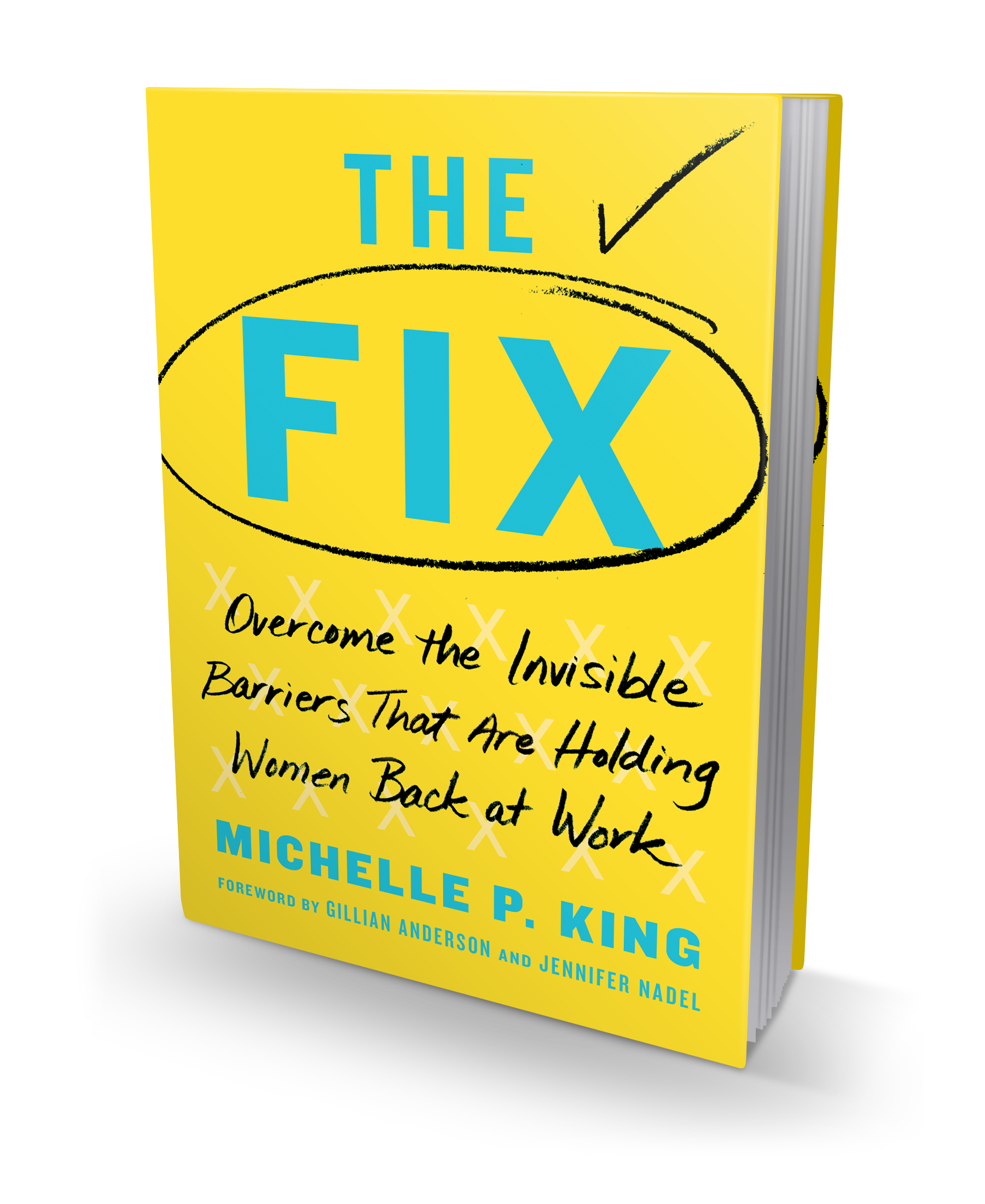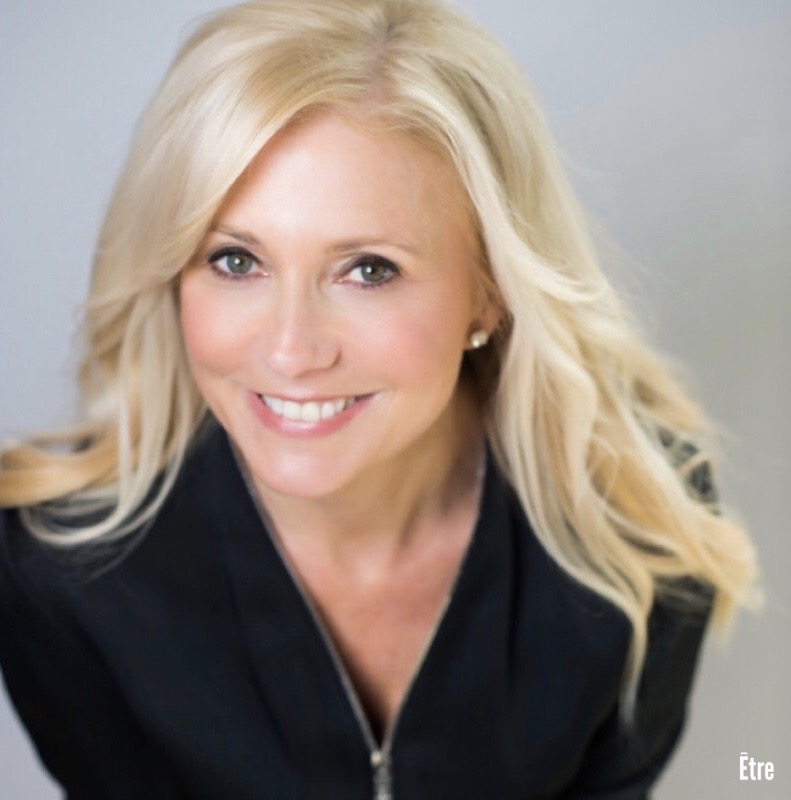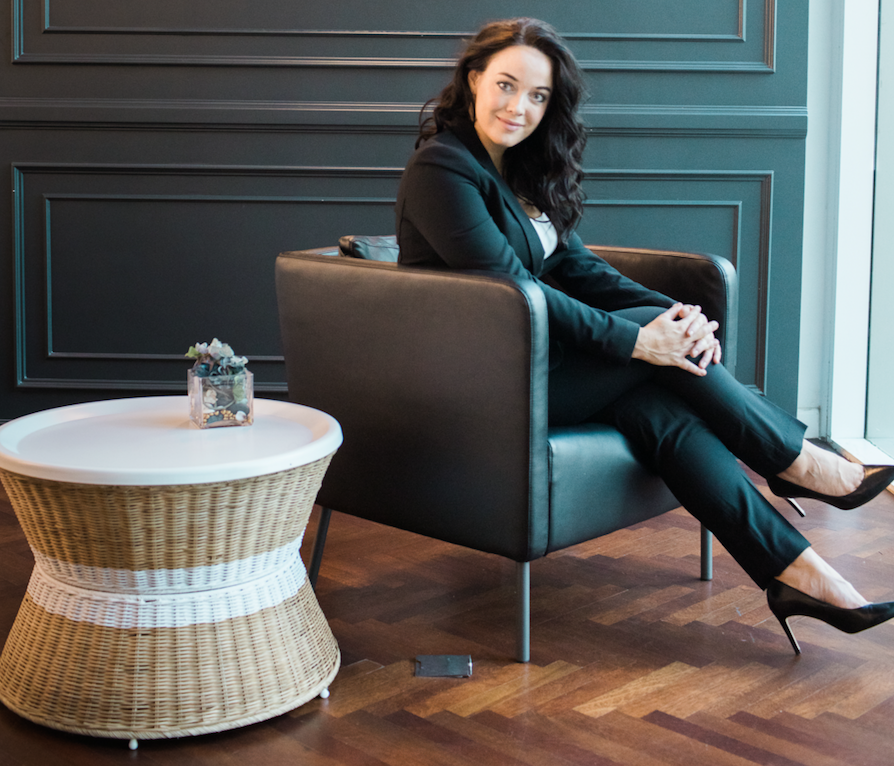“The thing girls need to know before they enter the workforce is that the greatest barriers to their advancement are invisible. Work life does not mirror school life. It is not a meritocracy. We need to shed light on these barriers now, so girls are prepared.”
So began a fascinating interview with Michelle King, Director of Inclusion at Netflix, gender equality expert, host of the podcast The Fix and recent author of THE FIX: Overcome the Invisible Barriers That Are Holding Women Back at Work. Hailed by Publisher’s Weekly as “a welcome addition to the growing chorus of voices calling out the system rather than individual women for workplace gender equality,” and roundly praised by founders, CEOs and celebrities alike, THE FIX offers a revolutionary message to today’s working women: You are not the problem. You do not need to be fixed. It is your workplace that needs to be fixed.
Could there be a better message for today’s girls?
You are not the problem. You do not need to be fixed.

Bringing sixteen years of research and one hundred hours of interviews to light, King breaks down topics like gender denial, invisible barriers, failures of feminism and likeability with clarity and candor, making the book a must-read for working women everywhere.
And a must-discuss for girls eyeing, but not yet entering, the workforce.
Below is an excerpt from our interview with King, in which she answered questions posed by high school Être girls about internships and first jobs, invisible barriers…and Netflix. We were honored to get the chance to chat.

Ê: You talk in THE FIX about gender denial – that it is the greatest barrier to women’s advancement at work. What exactly is gender denial and why should girls be aware of the concept?
MK: This is so important, and a big part of why I wrote the book. From the earliest age, girls and women are conditioned to expect that if they follow the rules and stay on the path, they will succeed because work is a meritocracy. It’s not. You can do everything just right and still not succeed, because the rules you are following were set up by men. Specifically, men who look and act like Don Draper, the character from the hit TV show Mad Men. In other words, the current system was designed without real differences in mind and most workplaces are in denial of that fact.
This is important, because girls might look at today’s workplace and think Oh, gender will not be an obstacle for me, and we know this is not true. The thing girls need to know before they enter the workforce is that the greatest barriers to their advancement are invisible. Work life does not mirror school life. It is not a meritocracy. We need to shed light on these barriers now, so girls are prepared.
Ê: You speak about ways that feminism has failed women of color. Can you talk more about that and what we can do to push back?
MK: The Don Draper prototype and all the behavior that goes along with that – trying to look or sound like a certain model and fit into a stereotype – presents an added burden for young women of color because the more ways you differ from the ideal in terms of race and gender, the more barriers you are likely to face. What we don’t say nearly often enough is that you deserve a workplace that values you exactly as you are. This means being brave enough to look around at any workplace, and this applies to schools too, and speak up. Ask for what you want and stop thinking about being likeable or fitting in.
We all know the statistics, like the fact that women account for only 4.6 percent of Fortune 500 CEOs, 8.1 percent of top earners, and 16.9 percent of Fortune 500 board seats – despite the fact that women hold 52 percent of all professional-level jobs…The situation is far worse for women of color who continue to remain underrepresented in every level of leadership in corporate America.
Michelle P. King
Ê: You also discuss the importance of entry interviews – discussions companies use to learn more about their employees and help them succeed in the future. Should girls thinking about internships or first jobs apply this concept too, when evaluating potential employers?
MK: Yes! Here is what I want to say to young women on this point – choose your organization wisely. Make sure that you ask questions like what’s your role in creating an inclusive environment here? Is there a corporate culture of inclusivity? This is important to ask when looking at jobs, and it is okay to lean into the organization to find out. What is the most challenging aspect of this company’s inclusion strategy? How are they spending their privilege? Do they even know what that is? The bottom line is this: working for an organization that gets it is everything. Take the time to ask good questions.
Workplaces don’t work for everybody in the same way because they were never designed for difference. Success does in fact discriminate.
Michelle P. King
Ê: Speaking of companies that get it, what was it about Netflix that drew you to join there? What questions did you ask?
MK: Aside from the fact that we tell the world’s greatest stories, I was first encouraged to speak with Netflix by former NFL player Wade Davis, a thought leader on gender and race equality and the NFL’s first LGBT inclusion consultant. He urged me to meet with them, and I did what I’m telling girls to do – I asked all my questions. The Netflix team was so aware and so inclusive, that I thought what an opportunity this is to make a demonstrable difference. And that is exactly what I’m hoping to do.
The time has come. We can no longer afford to work in environments that marginalize, discriminate, diminish, and devalue women or men because of their different identities – our futures depend on it.
Michelle P. King
There can be no doubt that King is making a demonstrable difference. And as her message reverberates through corporate boardrooms and office hallways, perhaps we will hear its echo in college classrooms and high school hallways.
Girls, you are not the problem. You do not need to be fixed.
Look carefully at organizations before you join them. Ask insightful questions and push for transparent answers. And know, above all else, that future equality and inclusion will come from workplaces changing to meet the needs of women, not the other way around.
THE FIX, recent winner of the 2020 Axiom Business Book Award Silver medal in the Women/Minorities in Business category, is available here. Être is grateful for Michelle King’s empowering words for women and girls everywhere.


